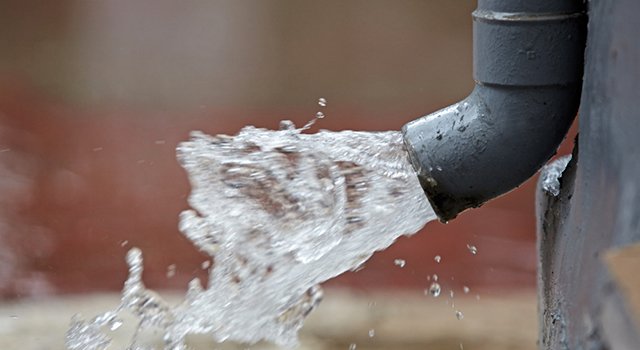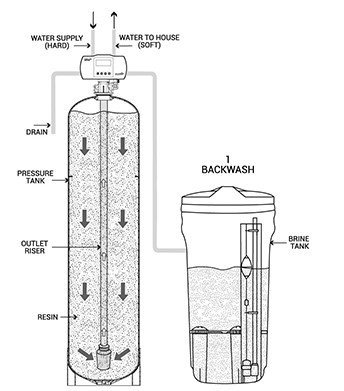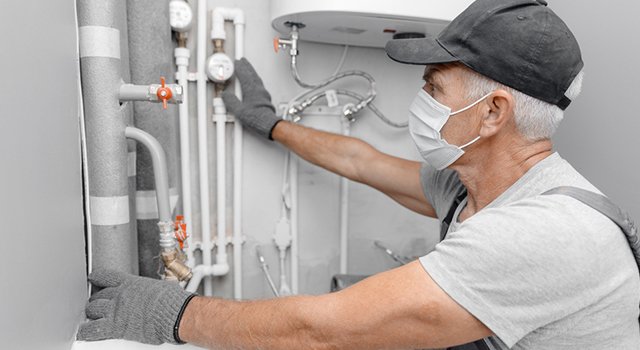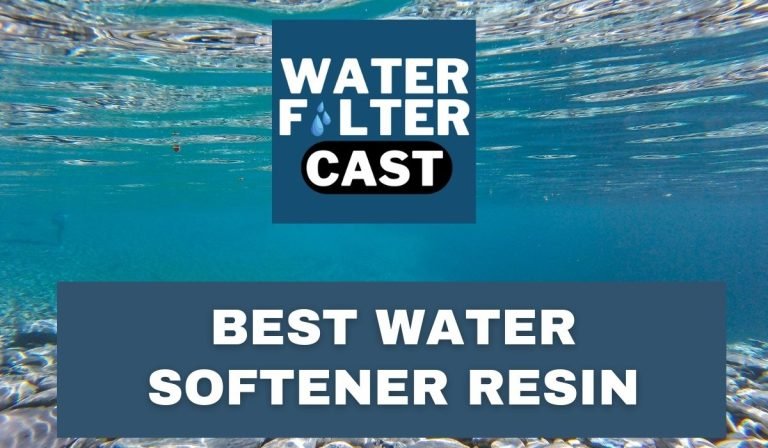Being conscious of how much water we use is a very important thing on a large scale. The more efficient we are with water, the less our bills are, the more water everyone has access too, less stress on water treatment plants, and cleaner water for the environment.

So how much water does a water softener add to a family’s weekly usage?
Table of contents
How Much Water Does a Water Softener Use?
This depends on a couple of different factors.
Types of Water Softeners Systems
It depends on your type of water softener and what brand you bought. If you have a dual tank system or an on-demand system, they can be more efficient than a single tank system for your water waste.
If you have an on-demand system, it will use less water and less salt per regeneration and conserve more water than one that must do a full, intense regeneration each time.
How often Regeneration Happens
If your family uses more water each day or got an improperly sized water softener system, then your water softener will have to regenerate more and dispose of spent water each time. The amount per regeneration can be between 25-65 gallons of water.
Except for regeneration, your water softener does not really use any extra water than what you are putting through it. If you are frugal with water use, your water softener will overall be frugal with its water use.
How Much Extra Water Does Water Softener Use?
Water softeners do not use much extra water at all. Say your water softener is to regenerate once a week based on your water usage, and you have an on-demand system that is highly efficient with how it uses water for regeneration.

You will only be using about 50 extra gallons a week at most for regeneration for keeping it working right.
If you have water usage that makes your system need to regenerate, say, 3 times a week, and you have a single tank system, you could be looking at an extra 150 gallons a week. this is a lot of extra water that will affect your water bill at the end of the month.
Water Softener Backwash Volume
You will have the most amount of water used during regeneration in two different parts. The first is the bringing and the second is during the backwash portion.

The backwash is going to last around 10 minutes, and in that 10 minutes, you will end up having multiples flushing of water to get the tank cleared of brine water. This means depending on the size of your tank and type of system; you will have anywhere from 20-30 gallons used all the way to 40-60 gallons used during this.
The difference in the amount of water you will use every year, depending on how efficient your water softener system is will be significant.
If you have a weekly regeneration and have one that uses 30 gallons for backwash, that amounts to 6,240 gallons of water a year. But if you have one that uses 60 gallons, it will double and go up to 12,480 gallons of water. That amount of extra water costs will be in the water bill through the year for sure.
What Would Cause Your Water Bill to Increase?
Water bills will increase for a couple of different reasons.

A leak in Your Toilet
This is where a lot of families will end up having increased water bills and not realize it. Toilets use about a quarter of all the water in most households already, so if you leak, it could significantly raise your water bill.
A Dripping Faucet
A dripping faucet can waste almost 20 gallons of water a day. It can be more or less, depending on how fast it is dripping.
A Broken Pipe or Leak
A broken pipe or leak can cause major water issues and significantly raise your water bills, and depending on where you live, it may be a while based on the type of ground soil your area has.

Water Softener problems
If you are having problems with your water softener where it cycles continuously or has a leak or is regenerating way too often, then you can have a big increase in water bills as well.
Hose leaks
When you are watering your lawn or garden, if you have any leaks or punctures in your hoses, you can see an increase in water bills as well.
Final Thoughts
You can have water that is better for your health as a whole and still be using less water if you are cognizant of what type of water softener you buy and what type of salt you use.
By getting a more efficient water softener and using the right salt and doing proper maintenance, you use the least amount of water that a water softener can use.





